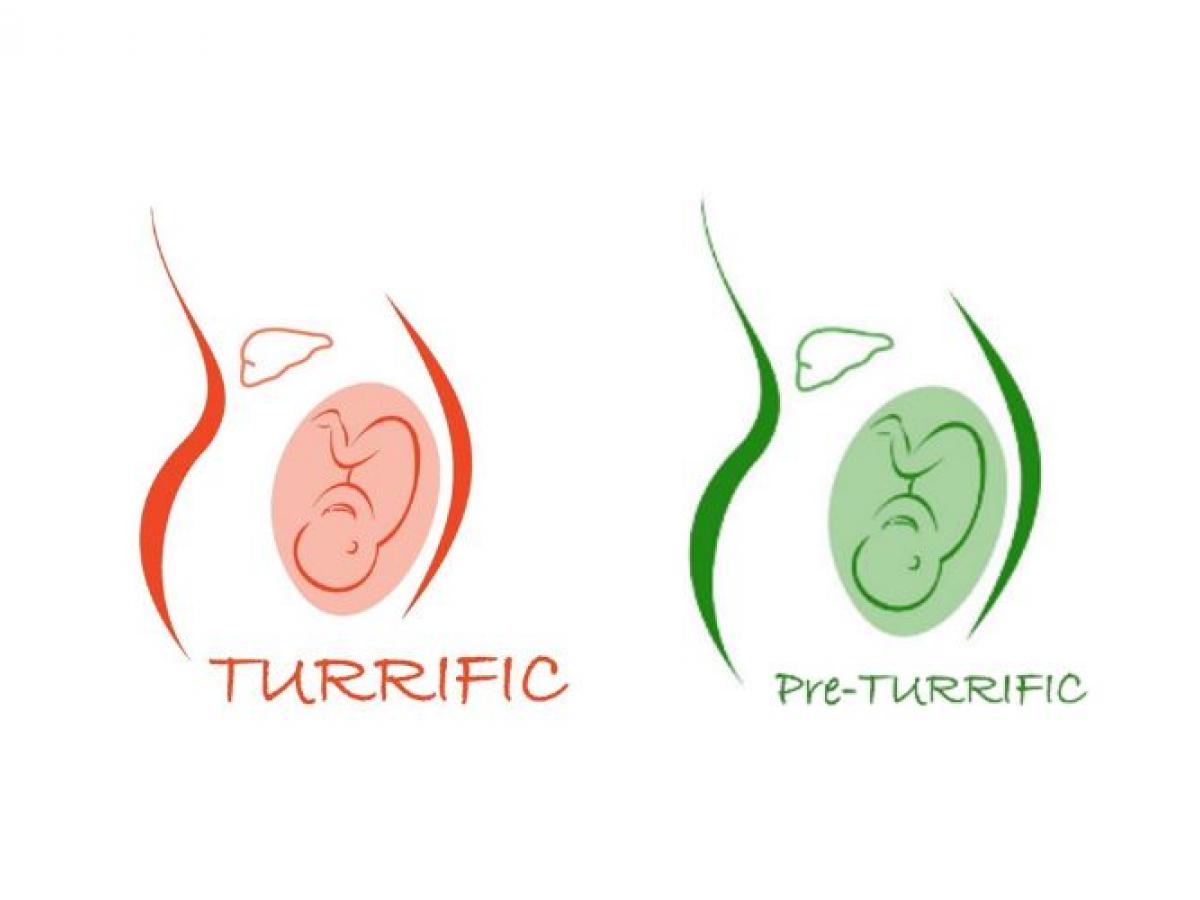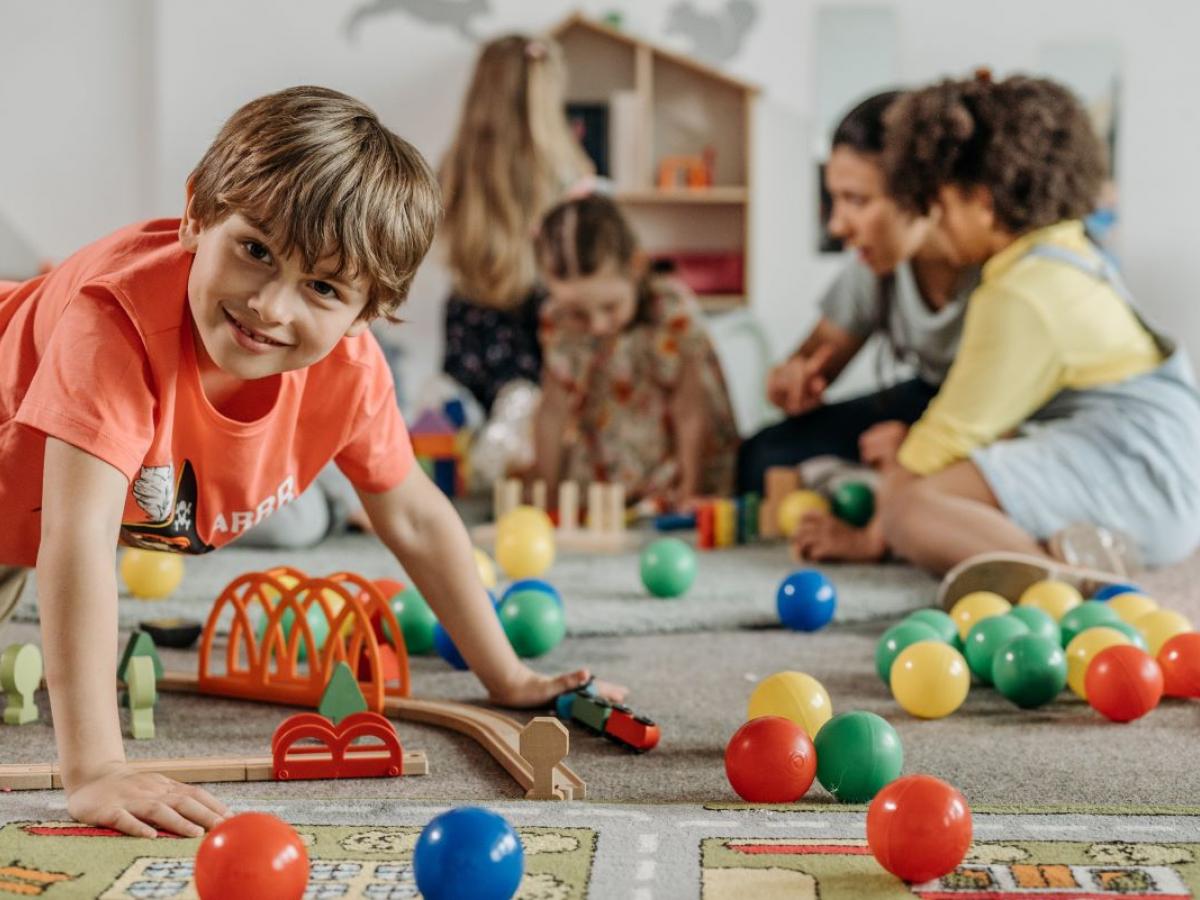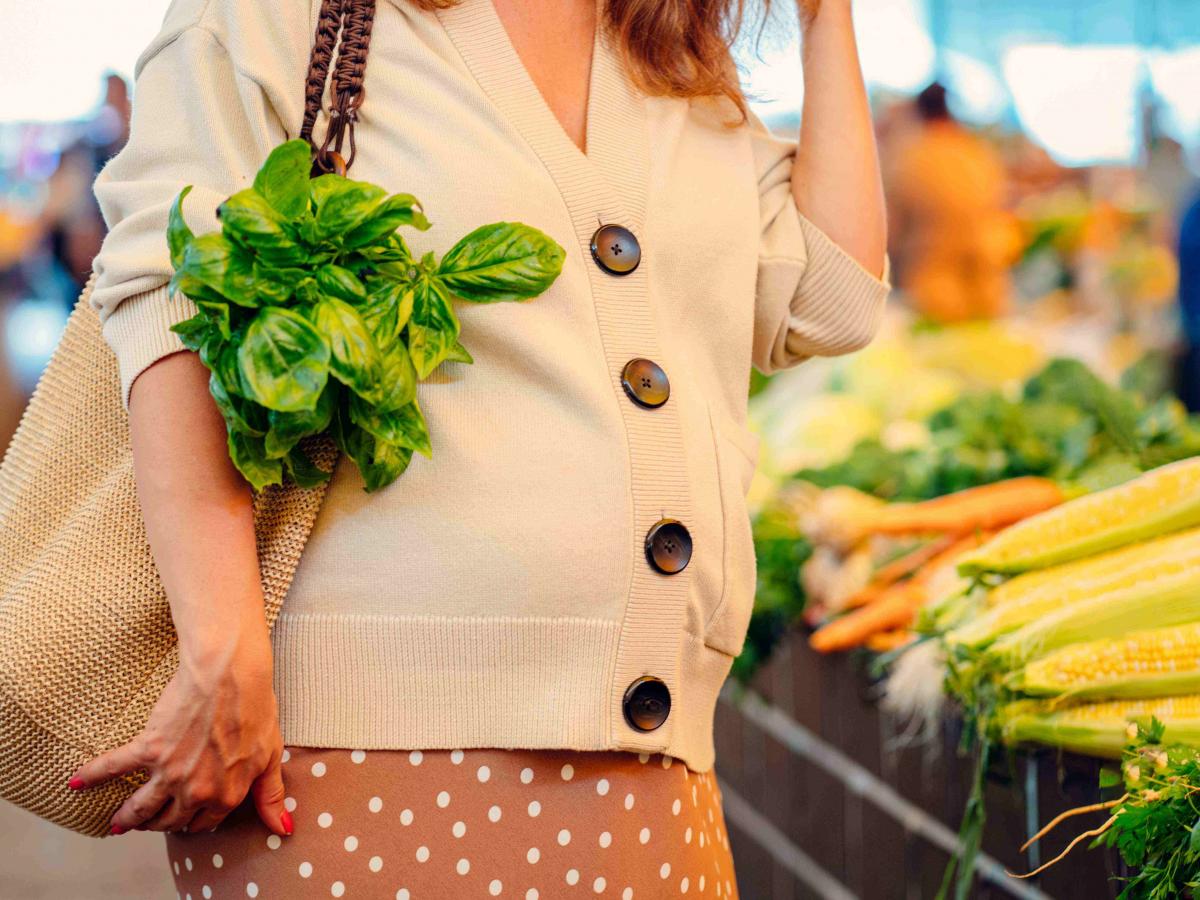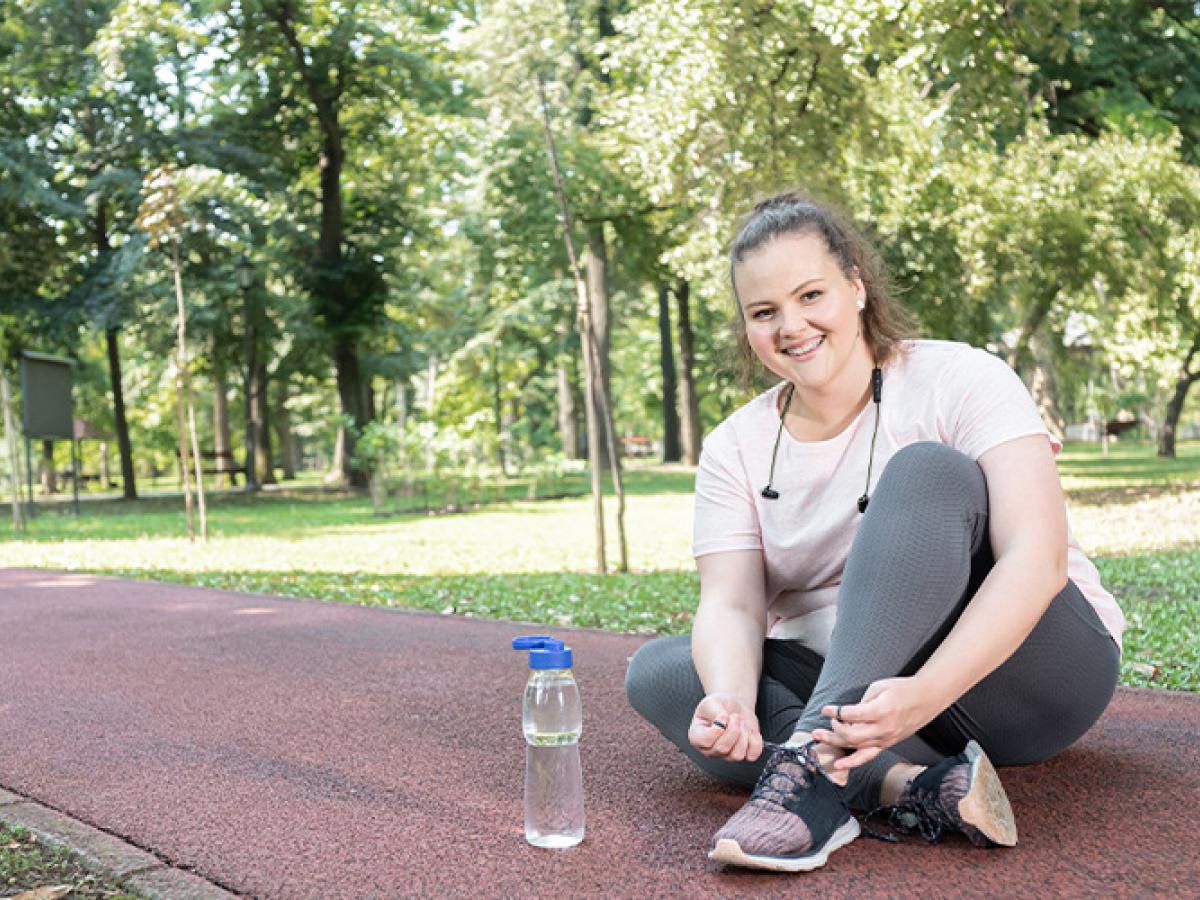Participate in our studies
Today's research, tomorrow's solutions - your participation makes a difference.
Our researchers run studies, research projects, clinical trials and cohort studies set to improve the health of mothers, babies and growing families. If you'd like to be involved in any of the projects below, contact the relevant research team.
New projects are added regularly.
-
Women’s Heart Health Following Pregnancy
Background
Women who experience complications of pregnancy (such as high blood pressure, diabetes during pregnancy, delivering preterm and delivering a small for gestational age baby) are more likely to develop heart disease in the future when compared to women who do not experience a complication of pregnancy. Therefore, we understand that it is very important to provide women with support as early as possible after pregnancy to help slow down or stop the onset of heart disease. We also know that pregnancy complications and heart disease can also be affected by immune cells in the body, and it is believed that the link between developing pregnancy complications and future heart disease involves the function of the immune system.
The study
This study aims to understand the link between heart health following a pregnancy complication and the immune system 6 months after having a baby.
We are looking for mums who had an uncomplicated pregnancy who have recently had their baby to take part in a study about heart health after pregnancy, to form a control cohort. Looking at differences between those with pregnancy complications and controls at the same time point provides a more accurate understanding of these systems between affected and non-affected individuals, providing more meaningful results that we can translate into our clinical practice.
Eligibility criteria
- Had no pregnancy complications (e.g. gestational diabetes, high blood pressure in pregnancy or during delivery, delivering preterm and/or a small baby and placental abruption)
- You live in the northern Adelaide area (including Gawler, Gawler Plains and Barossa)
- Your baby is less than 6 months old.
Your involvement
- A 40 minute appointment at The University of Adelaide precinct at the Lyell McEwin Hospital.
- Answering basic questions about lifestyle, medical history and diet and exercise.
- A pre-appointment, bulk billed blood test to look at cardiovascular markers (e.g. blood sugar, cholesterol). A copy of the results will be forwarded back to your GP.
- Measurements on the day including blood pressure, taking a photo of the eye to visualise the blood vessels, and providing a small sample of blood to look at immune cells in the body.
Participants will receive clinical resources on post-pregnancy healthy living and exercise tailored to mums, and a $50.00 voucher for their involvement in the study.
If you are interested, please fill out the online expression of interest form, and one of the study research team will be in contact with you.
Contact details
Dr Maleesa Pathirana
Phone 8133 2134 or 0403 220 812Email maleesa.pathirana@adelaide.edu.au
-
Relationship Satisfaction in Women from Migrant and Refugee Background - Attn Health Care Providers
This study is looking for health care professional in Adelaide, South Australia, to investigate Relationship Satisfaction in Women from Migrant and Refugee Backgrounds.
- Do you have experience or expertise in offering sexual and reproductive healthcare services to women from migrant and refugee backgrounds?
-
Looking for gynaecologists, GPs, sexual health specialists, nurses, midwives or other relevant providers
-
Based in Adelaide, South Australia
Participation will be compensated.
To participate, contact negin.mirzaeidamabi@adelaide.edu.au
-
Intrahepatic Cholestasis of Pregnancy studies

A randomised Trial of URsodeoxycholic acid versus RIFampicin in severe early onset Intrahepatic Cholestasis of pregnancy: the TURRIFIC study
And
Pre-assessment for the randomised Trial of URsodeoxycholic acid versus RIFampicin in severe early-onset Intrahepatic Cholestasis of pregnancy: the pre-TURRIFIC study
Intrahepatic cholestasis of pregnancy (ICP) is the most frequent liver disorder specific to pregnancy, with an Australian incidence of about 6 in a thousand pregnancies per year. Its main features are maternal pruritus (itch) and increased serum bile acids (BA) in the absence of known active liver disease, most commonly seen towards the end of the third trimester. The itch, though often mild, is sometimes extremely severe, causing major skin excoriations (damage, including scarring) and profound sleep disturbances. ICP can also cause severe liver dysfunction and jaundice. BA are formed in the liver and secreted in the bile into the intestine, where they break up fat in the ingested food from the diet and enable its uptake into the liver, where the BA are recycled. In ICP, this cycle of “enterohepatic circulation” is disrupted and serum BA concentrations increase, providing a diagnostic marker for the disorder. Maternal symptoms typically resolve after birth, but affected women have an increased risk of liver and biliary disease in later life. The long term outcome in the children of mothers with ICP is poorly researched.
Severe ICP (serum BA 40 µmol/L or greater) often presents early in the third trimester, and occasionally in the second trimester, and is associated with increased fetal risks, including an increased incidence of stillbirth (in those with BA greater than 100 µmol/L). Early-onset (<34 weeks’ gestation) severe ICP is a rare disorder, with an Australian incidence of about 1 in a thousand per year.
While ursodeoxycholic acid (UDCA) has commonly been used to treat ICP, recent research has raised some questions about its usefulness in relieving the itch. Another drug, rifampicin (RIF), an antibiotic commonly used to treat tuberculosis (including in pregnancy), has also been found to relieve itch in those with liver conditions associated with itch, outside of pregnancy.
The TURRIFIC study is designed to compare UDCA and RIF for the relief of itch in ICP. The secondary outcomes of the study include looking at whether UDCA or RIF are associated with better health of the mother and baby during pregnancy and at birth. A third aim of TURRIFIC is to study samples collected from the participants to assess what effects the medications have both on their gut microbiome and on markers in their blood, urine and stools (poo).
Women who meet the criteria for having severe, early onset ICP (itch, BA 40 µmol/L or greater, before 34 weeks’ gestation in the absence of other known active liver disorders) will be eligible to participate in TURRIFIC. Women who consent to participate in the study will be randomly allocated to receive either UDCA or RIF to treat their itch.
DETAILED TURRIFIC STUDY INFORMATION
Women who are pregnant, without a diagnosis of ICP, but who have an increased risk of developing ICP (because of previous ICP, or having a sister or a mother who have had ICP) are eligible to enrol in the pre-TURRIFIC study. This study has been designed to discover any biological signs that a woman is developing ICP. A woman taking part in this study does not take medication, but is simply observed, donating samples of blood, urine and stool at a few fixed timepoints in their pregnancy. However, should a woman in the pre-TURRIFIC study develop severe, early-onset ICP, she may join the TURRIFIC medication study if she so wishes.
DETAILED PRE-TURRIFIC STUDY INFORMATION
Where are we?
We have collaborating sites within Australia in South Australia (Women’s and Children’s Hospital, Flinders Medical Centre and Lyell McEwin Hospital), Victoria (Mercy Women’s Hospital, Monash Medical Centre), New South Wales (Liverpool and Campbelltown Hospitals, Royal Hospital for Women), and Western Australia (King Edward Memorial Hospital).
Internationally, we have active sites in Sweden (Sahlgrenska University Hospital, Gothenburg; Karolinska University Hospital, Stockholm), Finland (Helsinki University Hospital), and the UK (Queen’s Medical Centre, and City Hospital, Nottingham, and St Thomas’ Hospital, London).
For further information, or to participate, please direct enquiries and questions to: turrific@adelaide.edu.au
This study is funded by a grant provided by the Medical Research Future Fund (MRFF) of the Australian Government Department of Health and Aged Care, and is registered on the Australian and New Zealand Clinical Trials Registry (ANZCTR: ACTRN12618000332224). The study has been approved for conduct in Australia by the Human Research Ethics Committee of the Women’s and Children’s Health Network.
-
Sore Throat Study

We are looking for children and young people to take part in a new study investigating the incidence of sore throats, and how we can best prevent them.
What will researchers investigate?
Taking part in the Sore Throat Study will help researchers learn more about:
- How many children get sore throats
- What is the most common cause of sore throat in children
- How sore throats can change during different seasons of the year
- How a vaccine could be used to prevent sore throats caused by Strep A bacteria
Who can take part?
Healthy children and young people aged 3 to 14 years will be invited to participate in this study.
What does the study involve?
If you and your child take part in this study, we will monitor your child’s health for 12 months. We will ask you to attend a minimum of 3 study visits, which can all be virtual. You will also be asked to provide samples such as blood and throat swabs.
If your child experiences signs or symptoms of sore throat, we will arrange additional visits.
Will I be reimbursed for my time or expenses?
Reasonable costs for your travel will be reimbursed.
For more information please call (08) 8161 6328 or email sorethroatstudy@adelaide.edu.au.
-
The Begin Better Study
Does your health before pregnancy matter? How does it affect your baby?
The Begin Better Study is here to find out.Visit the Begin Better study page for more information.
-
CAB study: for pregnant women and their newborn babies
CAB study: for pregnant women and their newborn babies
Can your COVID-19 vaccination history help us find out when pregnant women should be vaccinated against COVID-19 to offer the best protection for their babies after birth?
- One visit during pregnancy where a blood sample will be collected.
- Two visits after your baby is born where a blood sample will be collected from your baby
- at 4-6 weeks of age
- at 6 months
You will be asked to provide a small sample of breast milk at the second visit.
To compensate you for your out of pocket expenses, you will be provided with a $50 voucher at each study visit.
To find out more, contact (08) 8161 6328 or virtu@adelaide.edu.au.
-
Estimating energy requirements in pregnant women study
Estimating energy requirements (EER) in pregnant women study
Researchers at The University of Adelaide and SAHMRI are looking to find out more about how women’s food and exercise change during pregnancy and how this relates to measures of body composition.
You are eligible if:
-
You are pregnant and in your first trimester (week 1-13 in your pregnancy)
-
Aged 18 years or over
-
You can attend one appointment at SAHMRI during each trimester of pregnancy (total of 3 visits).
You will receive a $30 gift card after each of the three study visits.
Please contact the EER study team if you are interested in participating, or if you would like to know more about it.
Please use this link below to access our study information and screening questionnaire:

-
-
Is your child allergic to peanut?
-
Meningococcal B vaccine study for toddlers
-
Uncovering the causes of cerebral palsy study
Approximately 1 in every 500 children is born with cerebral palsy.
It is now recognised that most cases are associated with factors present before labour begins, and not as a result of events which occur during labour and delivery.
What actually causes cerebral palsy is not clear. In order to determine these factors, it is important to conduct research into the possible causes of cerebral palsy. -
ENDIA study: Why are more children getting type 1 diabetes?
Type 1 diabetes in children is twice as common as it was 20 years ago. This is because the environment has changed and this has made it more likely that children will develop type 1 diabetes.
If we can understand what factors in the environment are harmful or protective, and how they interact with our genes, we can modify the environment to try to prevent type 1 diabetes.
The ENDIA study is Australia's biggest type 1 diabetes study and is aiming to recruite 1,400 people to discover the environmental triggers for this disease. -
The WashT Trial
Does washing blood for transfusion make a difference to preterm babies?
Transfusion with washed versus unwashed red blood cells to reduce morbidity and mortality in infants born less than 28 weeks gestation: a multi-centre, blinded, parallel group randomised controlled trial.
Investigators
Prof Michael Stark, Dr Chad Andersen (Department of Neonatal Medicine, Women’s and Children’s Hospital); A/Prof Carmel Collins, Dr Thomas Sullivan (South Australian Health and Medical Research Institute); Dr Denese Marks (Australian Red Cross Lifeblood); A/Prof Rachael Morton (NHMRC Clinical Trials Centre, University of Sydney); Dr Louise Owen (The Women’s Hospital & University of Melbourne).
Preterm babies often receive a blood transfusion (where blood is given because the blood count falls) during their stay in the nursery. While transfusions save lives in the NICU setting the potential for RBC transfusion related adverse outcomes is an area of growing interest and concern. In sick adults and children, research suggests transfusion with washed blood may reduce illness.
This study will determine the potential for transfusion with washed RBCs to reduce the incidence of transfusion associated neonatal mortality and increase survival free of significant neonatal morbidity compared to current standard transfusion practice.
The blood used for transfusion is extensively screened by the Australian Red Cross Lifeblood Service and is very safe. Both washed and unwashed blood are held by all transfusion laboratories. Both are licensed for use and can be specifically requested at the doctor’s choice.
Learn more about the WashT Trial here
This study has been approved by the Human Research and Ethics Committee of the Women’s and Children’s Hospital – HREC/19/WCHN/182
Please direct enquiries and questions to: washt@sahmri.com
-
Your health before pregnancy: does it affect your future baby too?

Does your health before pregnancy matter? How does it affect your baby? The Begin Better Study is here to find out.
The Begin Better Randomised Control Trial aims to understand whether improving a woman’s health before pregnancy, by changing behaviours related to physical activity and diet, will improve health outcomes for the mother and her baby.
Women who are above the healthy weight range are at increased risk of some pregnancy complications, including high blood pressure, gestational diabetes and caesarean birth, and their babies are more likely to have complications too. Longer term health risks for babies include development of conditions related to metabolic syndrome throughout their lifetime. In addition, women who live with overweight and obesity before pregnancy are additionally at greater risk for many of these adverse outcomes.
It may be that the best way to reduce these health risks complicated by overweight and obesity is to improve a woman’s physical and mental health before becoming pregnant by making positive lifestyle changes to both diet and physical activity.
Participants enrolled in the study will be randomly allocated to either the Lifestyle Intervention Group or the Educational Control Group. All women will attend clinic appointments at the Women’s and Children’s Hospital and receive health recommendations for planning for pregnancy including access to the study website. Those in the Lifestyle Intervention arm of the study will be offered counselling from a dietitian, and health coaching for 6 months. All women enrolled in the study will be followed for a period of up to two years, and if pregnancy occurs in this time, information will be collected about the pregnancy and birth, and their infant until 18 months of age.
To register your interest or for more information
Contact the Begin Better Study team at the Women’s and Children’s Hospital
(08) 8161 8427
beginbetter@adelaide.edu.au -
Diabetes Distress and Emotional Wellbeing Study
Type 2 Diabetes, a condition typically seen in adults, is becoming more common in young people. There are no studies evaluating the emotional impact of Type 2 Diabetes (called “diabetes distress”) on children and adolescents.
Participants in this study will complete three short questionnaires (a total duration of less than 30 minutes) about their experience living with diabetes and their well being in general. These surveys can either be completed from home (via mail/email) or in-person, depending on preference.
Your participation in this study will give us important information about how living with Type 2 Diabetes affects young people and how we best support the emotional well being of this patient group from the time of diagnosis.
You may be eligible to participate in this study if you:
- Are aged 10-19
- Have been diagnosed with Type 2 Diabetes
For further information, or if you would like to participate, please contact Dana Spajic (Honours Student) at 0413 356 186 or dana.spajic@student.adelaide.edu.au
-
IMAGENDO: Diagnosing endometriosis with imaging and artificial intelligence
Have you had an MRI and/or an Ultrasound for pelvic pain? Or, are you planning to have surgery for pelvic pain in the next six months?
If so, you could be involved in the IMAGENDO Study.
Currently, the recommended way of diagnosing endometriosis is to perform keyhole surgery and view the endometrial deposits inside the abdomen, ideally verified by microscopic examination of the tissue. This method is recommended for the diagnosis of endometriosis but surgery can be problematic, difficult to access, and is associated with delays.
The Imagendo study will use machine learning to automatically digitally combine the diagnostic capabilities of pelvic scans and magnetic resonance imaging (MRI) to identify endometriosis lesions. Machine learning is an application of artificial intelligence (AI) that provides systems the ability to automatically learn and improve from experience without being explicitly programmed.
Visit imagendo.org.au to learn more.
-
Better understand the male contribution to a healthy pregnancy
Are you a healthy male, aged between 18 and 45 years?
We are currently seeking volunteers in good general health aged 18-45 years for our research study that seeks to better understand the male contribution to a healthy pregnancy.
Male semen plays an important role in preparing the female immune system for a healthy pregnancy. We are interested in determining the identity of the key factors in semen that are responsible for initiating the female immune response.
If after reading through the patient information sheet you wish to participate in this study, you will be asked to produce up to four (4) individual semen samples over a period of approximately six (6) months. You will also be asked to complete a brief questionnaire relating to your fertility status and lifestyle habits.
Semen samples are able to be produced in the comfort of your own home and then dropped off at our study site, located at the Adelaide Health and Medical Sciences (AHMS) building, cnr George Street and North Terrace, The University of Adelaide.
After each sample donation, you will receive a $25 Coles-Myer gift voucher as an honorarium for your time.
To find out more information about this study, please visit: https://is.gd/semen_study or if you have any questions about the study please email PhD candidate Hannah Lyons (hannah.lyons@adelaide.edu.au).
This study has been approved by the human research ethics committee of the University of Adelaide – approval number H-2022-03
-
PICOBOO COVID-19 Vaccine Booster Study
This study is seeking:
-
Adults aged 50 or over interested in having a third booster dose
-
Adults aged 18 or over who have not had a second booster dose
-
Teenagers aged 12 – 17 who are interested in having a 1st booster dose
The Vaccinology and Immunology Research Trials Unit (VIRTU) at the Women’s and Children’s Hospital is investigating the most effective, long-term strategies for booster vaccinations to find out whether:
- Immunity can be maximised by ‘mixing' vaccine booster types and how long this protection lasts.
- How strategies may need to differ depending on age and previous COVID-19 vaccines.
For more information about PICOBOO, please email VIRTU@adelaide.edu.au or call Meredith Krieg on 8161 7349 or Arockia Sugantharaj on 8161 7452. You can also fill in an Expression of interest form: https://redcap.link/PICOBOOAdelaide
This study has been approved by the Child and Adolescent Human Research Ethics Committee. Any person with concerns or complaints about the conduct of this study should contact the Executive Director of Medical Services via [08 6456 2222] who can refer your concerns to the HREC monitoring the project.
-
